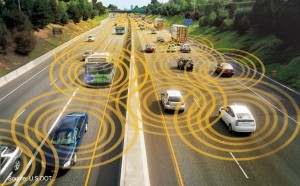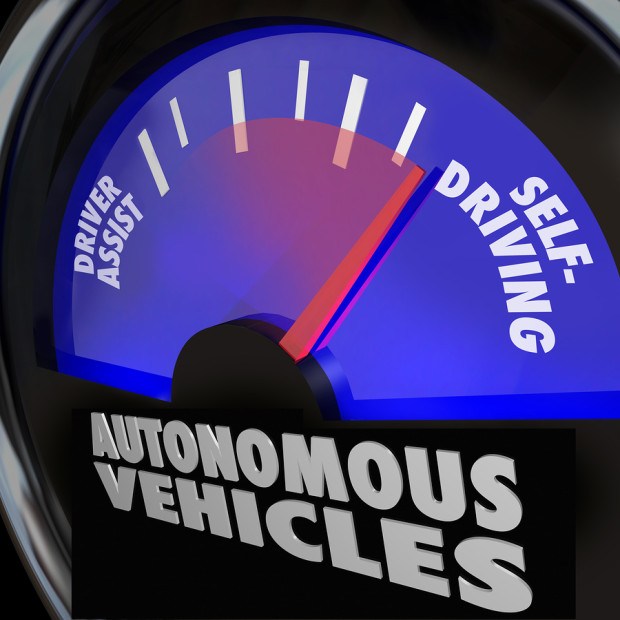 A sizable majority of insurers aren’t ready for the arrival of autonomous vehicles, even as their development and testing accelerates, KPMG determined in a new survey.
A sizable majority of insurers aren’t ready for the arrival of autonomous vehicles, even as their development and testing accelerates, KPMG determined in a new survey.
The audit, tax and advisory firm found hat 74 percent of insurers felt they were not prepared for driverless vehicles. About 16 percent of respondents said they were somewhere in between “extremely prepared” and “not at all prepared,” and just 10 percent said they were ready for the new technology.
Those results underscore the disconnect between executives’ perception of how far along autonomous driving technology is, and where the advances actually stand, said Jerry Albright, a principal in KPMG’s Actuarial and Insurance Risk practice.
“The disruption of autonomous vehicles to the entire automotive ecosystem will be profound, and the change will happen faster than most in the insurance industry think,” Albright said in prepared remarks. “Technology is making cars safer, impacting underwriting practices, claim frequency and severity as well as auto premiums. To remain relevant in the future, insurers must evaluate their exposure and make necessary adjustments to their business models, corporate strategy and operations.”
KPMG said it surveyed senior U.S. insurance executives whose companies, in aggregate, account for close to $85 billion in personal and commercial auto insurance premium. Their responses suggest that most have not gone beyond preliminary discussions when it comes to planning for autonomous vehicle coverage and adjustment in policies that the technology will entail.
For example, only 6 percent of respondents said, respectively, that they’ve developed an operational plan for driverless vehicles or set up a formal task force to deal with the issue. Ten percent said they’ve put together a strategic plan and 65 percent said they’ve at least had conversations internally or externally about the matter. However, 32 percent said they haven’t done anything yet as far as planning.
About 13 percent said they’ve made investments in enhanced processes as they pertain to driverless vehicles, 19 percent said they’ve invested in people and 26 percent responded that they are putting money toward new technology. Most – 61 percent – said they are not making any investments in driverless vehicle coverage, the KPMG survey found.
Why aren’t insurers doing more to prepare for driverless vehicles? A majority – 64 percent – said they’re not using outside assistance to prepare for changes brought on by driverless vehicles because the their potential technological impact “is too far off in the future.” As well, 32 percent said that their carriers’ internal resources were enough to prepare for the technology. About 9 percent said that driverless vehicles won’t have a material impact on the insurance business.Still, respondents acknowledged they will need help to prepare for driverless vehicles when the technology becomes in wider use. Thirty-nine percent of respondents said they’d need help, respectively, with both strategy and product development. About 26 percent of respondents said assistance would be necessary for regulatory, underwriting and market intelligence work, and 16 percent said they’d need help in crafting claims protocols. A solid minority – 29 percent – said they would not need any kind of help in any area.
Small majorities of respondents said that driverless technology will force changes in underwriting, product management and claims. A large majority – 94 percent – said that understanding the underwriting impact of driverless vehicles would be the most critical area of focus. That is in part because insurance execs expect they’ll have to reduce premiums they charge for personal and commercial auto insurance once driverless technology hits the wider marketplace, KPMG said.
Respondents also looked ahead, predicting the rise of more niche writers, new providers, and increased consolidation among traditional writers in response to autonomous driving technology.
KPMG’s survey is called “Automobile insurance in the era of autonomous vehicles.”
Source: KPMG





















 High Court Ruling on Trump Tariffs to ‘Ease Uncertainty,’ Says AM Best
High Court Ruling on Trump Tariffs to ‘Ease Uncertainty,’ Says AM Best  New Texas Law Requires Insurers Provide Reason for Declining or Canceling Policies
New Texas Law Requires Insurers Provide Reason for Declining or Canceling Policies  Why Claims AI Build vs. Buy Decisions So Often Miss the Mark
Why Claims AI Build vs. Buy Decisions So Often Miss the Mark  Machine Learning for Mutuals: What’s Working, What’s Not, and What’s Next
Machine Learning for Mutuals: What’s Working, What’s Not, and What’s Next 














